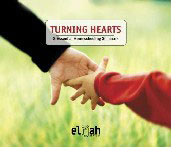
E-journal November 12, 2009 |
Why are Women Becoming More and More Unhappy? View past ejournals HERE>> Sign up for our newsletter below. The study reported that from 1972 to 2006, women have become more and more unhappy. And the decline in happiness has had nothing to do with how old they were, what race they were, how educated they were, whether they had kids, how many kids they had, whether they worked or stayed at home, how much money they made, or whether they were married, divorced, or single. The conclusion of the study was that women are generally less happy today than they were 35 years ago, NO MATTER WHAT THEIR LIVES ARE LIKE. Not only that, but, as a gender, women are trending towards less and less happiness. Since 1972, women’s overall happiness has declined, not only relative to how happy they were 35 years ago, but also relative to men’s overall happiness. Since the report came out in August, the media has generated a lot of theories to try and explain why women are becoming more and more unhappy. Theories such as, “women are more stressed today because they have to be supermoms juggling careers and households at the same time.” But that theory doesn’t hold water because stay-at-home moms reported a decline in happiness just like working moms did. And whether the women was married or single didn’t make any difference—both situations showed declining happiness for women. In fact, none of the theories the media or other researchers have proposed explain the downtrend in women’s happiness over the last 35 years. After I wrote the last newsletter, I researched “happiness” and found that there are universally agreed-upon ways of becoming happier. There is even a “Happiness Project” that studies what makes people happy and suggests ways you can increase your happiness. In fact, you can go online and take a test to find out how happy you really are at THIS WEBSITE. But before I share the “happiness formula” that I derived from my research, I want to comment on how I was struck with an obvious fact. All the ways of becoming happier are based on one assumption: How happy you can become is related to how much you value yourself and how much you value your own happiness. In other words, it’s hard to be happy if you don’t value yourself or value your happiness. Valuing Happiness Let’s start with “valuing happiness.” It seems like everyone in his or her right mind should value happiness and want more of it in their lives. But is that really true? Every time I turn around I hear someone complaining about how victimized they’ve been. And I’m not just talking about on the evening news. I’m talking about friends, relatives, acquaintances. It seems like everyone has a story of how they were “done wrong” or about how life has treated them unfairly—and the more problems they have to share, the better they feel. Their lives are full of “Poor me,” “Life’s not fair,” “I should have been treated differently,” “If only this had happened (or that hadn’t happened)…then my life would be better” and “When this or that thing happens…then I can finally be happy.” There is an undercurrent of "whining" about how they wish their lives were different. It’s almost as if they enjoy being miserable—as if being miserable makes them “happy.” How can this be? I remember when I studied Transactional Analysis back in the 80’s. To me, TA is the best model of human behavior available and everyone (particularly parents) should have a working knowledge of it. A core tenant of TA is that the primary psychological motivator in all our behavior is the desire for recognition or “strokes.” A stroke is a unit of recognition (any act, physical or symbolic, that recognizes another’s presence). Our continual need and quest for strokes provides the basic structure of our whole lives. Strokes are so vital to us that any stroke or recognition is better than none. We would rather receive a negative stroke such as an angry word, a put-down, or a hostile glance than to be ignored and receive no stroke at all. Being a “victim” is a great way of getting strokes (“Oh, you poor thing. How awful! I’m so sorry that happened to you. You’re right to feel so angry and hurt. Let me help you.”). That’s why so many people choose victimhood as their primary role in life. So in a way, they get happiness from being miserable. But they don’t really value “happiness,” they value misery. It’s kind of an upside-down, inauthentic take on happiness. Valuing Yourself Here’s where it gets tricky for Christians, particularly Christian women. It seems to me that, as Christians, we have three great barriers to overcome concerning our happiness:
Sometimes I think we’ve embraced the theology of Fiddler on the Roof. In the play, when asked what the Jews do until their Messiah comes, the answer is, “we suffer, we suffer.” All three of these barriers have to do with not valuing ourselves. I’ve always been amazed at the Christian teachings I hear about priorities. I can’t count the number of sermons I’ve listened to that encourage a priority list something like this: God first, family second, church third, community fourth, world fifth, etc. (Or, if you’re a married woman, the priority list goes: God first, husband second, children third, church fourth, community fifth, world sixth, and so on.) I’ve always wondered where “I” fit into that list. “Me” is never on any of the lists of what should be priorities in my life, or, if I am on the list, I’m such a low priority that I’m never mentioned. It seems to me that you can’t really have an authentic relationship with God…or family…or church…or community…or the world…etc. until you have an authentic relationship with yourself. You can’t love God with your heart, soul, mind and strength if you don’t also know how to love yourself. You can’t love your neighbor as yourself in the way Jesus was talking about if you don’t value yourself. It’s hard to think of God as a loving father and put him first in your life if you’re miserable and think you are supposed to suffer. What kind of father wants his kids to think it’s a good thing if they suffer? What kind of parent wants his children to think it’s selfish to want to have a happy life? Most parents I know, myself included, want our children’s lives to be as happy as we can possibly make them. We don’t’ want our sons or daughters to struggle and suffer or deny their needs and wants any more than is absolutely necessary for their well-being. Don’t you think God, the ultimate parent, might want that even more for us? Getting Things Straight So there are two things we need to get straight before we can begin thinking about increasing the levle of happiness in our lives: 1. First, in order to be happy now, we have to be willing to give up all hope of a different, better past and all fantasies of future "rescue" from our problems. We can’t keep carrying a grievance and blaming people, things, or situations for our unhappiness if we ever hope to be happy. And we can’t think of ourselves as victims and be happy. We have to live in the now, not the past or the future. We have to be aware of what is happening right now without wishing to change it. Get out of, “Poor me,” “Life’s not fair,” “I should have been treated differently,” “If only…then” and “When…then.” 2. Second, we have to value ourselves enough to believe that we deserve happiness. In fact, happiness is our right as children of God. The founders of this country so strongly believed they deserved happiness that they were willing to put their lives on the line to be able to pursue it. The body of the Declaration of Independence begins, “We hold these truths to be self-evident, that all men are created equal, that they are endowed by their Creator with certain unalienable Rights, that among these are Life, Liberty and the pursuit of Happiness.” So… let’s spend some time getting those two things straight—first, that we value happiness, and second, that we value ourselves enough to want ourselves to be happy. And next issue I will share with you the ingredients of increasing the happiness in our lives. Til then, try to “Don’t’ worry, be happy.”
Left Brained Finance for Right Brained People is hands down the best book we've ever found about money and finances and how to manage both. It could be used as the core curriculum for a Money and Finance unit with junior highs and up or by parents to have an overall understanding of money and how it works so they can teach their children. |
Home Business Resources
If you missed one of our From Home School to Home Business Conferences, you missed a great time.People who have attended tell us that it changed their lives—not only in the area of home schooling, but also in the area of creating their own sources of home income.This set is huge and filled with useful and encouraging information about how to be successful at home schooling and at home business! Find out more about this life-changing set of CDs HERE>> Building the Business of Your Dreams (8 CD Set) I've had requests for just the business portion of the From Home School to Home Business Seminar, so have developed a set of the business CDs from that set. It contains 8 CDs and includes sessions on The Entrepreneurial Mind, Multiple Streams of Home Income, Discovering Your Ideal Life and Ideal Business (2 CDs) , Developing a Business Plan (2 CDs), and The Importance of Business Relationships. Plus, there is a very important and insightful interview on Redeeming the Marketplace. Find out about this life-changing set of CDs HERE>> With over 4,000 copies sold in just a few months, I Saw the Angel in the Marble is becoming a home schooling best seller! This book represents the best of 15 years of Elijah Company articles. Find our more HERE>>
Any article appearing on this website may be copied or forwarded electronically provided that proper credit is given and that the article is not substantively modified.
No article may appear in whole or in part in a publication sold for profit or as part of any commercial endeavor without the written consent of Home School Marketplace. Any reprint must include an acknowledgement of where it came from and the sentence "Sign up for the Home School Marketplace newsletter at www.homeschoolmarketplace.com." |





